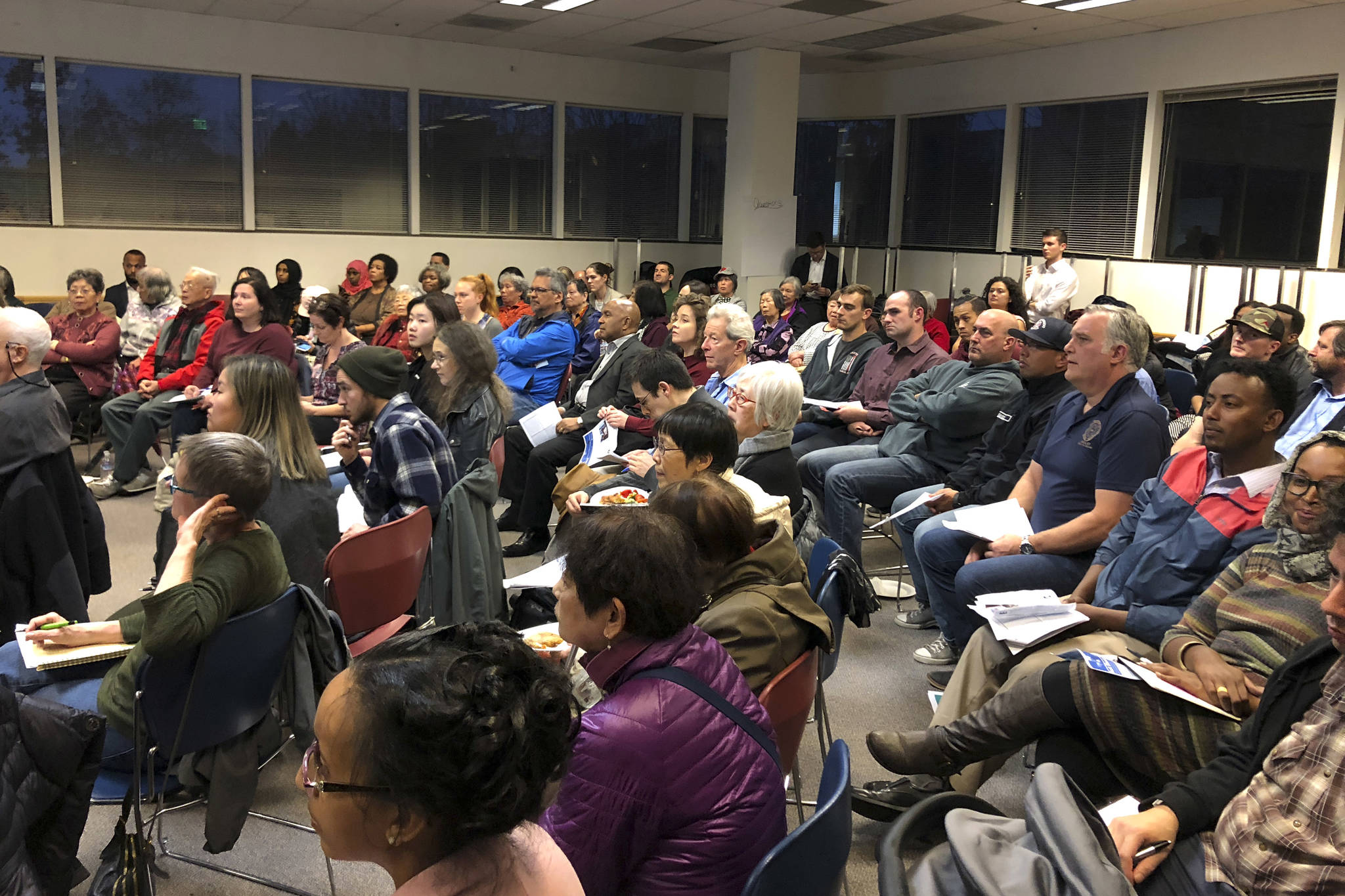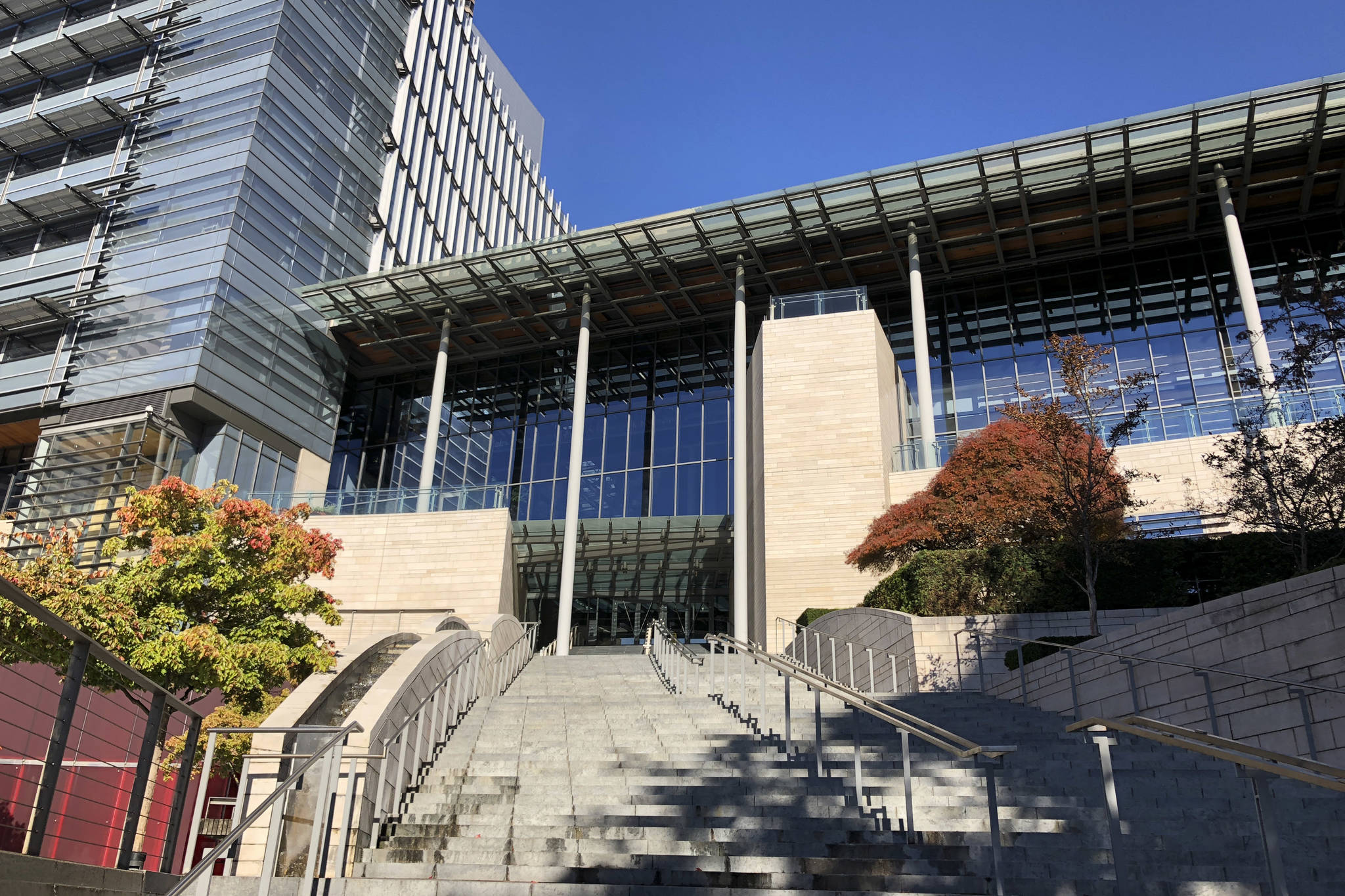On Oct. 17, a group tasked with providing community input on police reforms recommended that the City Council reject Seattle’s rank-and-file police union’s tentative agreement due to deviations from police-accountability legislation passed last May.
The Community Police Commission (CPC) lamented their need to oppose the proposed contract, and discussed a plan to inform the community of the tentative agreement’s shortcomings. But two weeks later, members of the public say they remain confused about the particulars of the proposed contract and how it could jeopardize their safety.
Moreover, a briefing filed by the CPC in federal court on Oct. 29 suggested that the proposed contract should seek to comply with reforms to restore the public’s trust in law enforcement, while some marginalized communities contend that their voices have not been heard during the city’s discussions of the tentative contract over the past month.
Some of those concerned community members spoke up during the CPC’s first public meeting Oct. 25 to discuss the contract between the city and its largest police union, Seattle Police Officer’s Guild (SPOG), at the Central District’s Seattle Vocational Institute. Over 100 people sat in rows facing CPC commissioners Isaac Ruiz and Lisa Daugaard as the two took turns reading from slides on a projector screen at the front of the room.
The absence of translators at the hour-long presentation, conducted in English, was not lost on the audience, diverse in age and ethnicity, some of whom rose from their seats to complain. “This is not a conversation, this is a talk-to,” a member of the public shouted. “It’s quite disrespectful calling a community meeting and not having any translation,” the woman added as she and several other people stormed out of the room halfway through the event.
Commissioners had called the meeting to discuss their concerns with language in the contract that they say contradicts or makes vague 2017 reform legislation designed to enhance police accountability and transparency. The ordinance created three oversight agencies: an independent auditor of the police called the Office of Inspector General; the Office of Police Accountability (OPA), an agency led by law enforcement and civilians that handles police misconduct complaints; and it also made permanent the CPC. SPOG’s tentative agreement is also a linchpin to federal approval of the 2017 ordinance: U.S. District Judge James Robart — the judicial official charged with overseeing the city’s 2012 consent decree with the Department of Justice (DOJ) — has withheld review of the legislation to ensure that the police union contract aligns with court-ordered reforms.
During their presentation, Ruiz and Daugaard noted that the commissioners, community advocates, and former auditors were not involved in the negotiations. The mayor’s office, SPOG, and the City Council’s Labor Relations Policy Committee were responsible for the 100-page tentative agreement that was made public in mid-October. SPOG has not had a contract since the last one expired in late 2014; therefore, the contract would become retroactively effective on Jan. 1, 2015, and expire on Dec. 31, 2020, if approved by the Seattle City Council.
Community members ate pizza and mumbled in various languages as the commissioners discussed departures from the ordinance, such as the creation of additional avenues for police to contest disciplinary action. The legislation established only one path to appeal police discipline through the Public Safety Civil Service Commission — an impartial three-member body that has meetings open to the public. Meanwhile, the tentative agreement provides an additional option for officers to contest disciplinary action through closed hearings held by arbitrators, who are often former judges or lawyers hired to settle labor disputes.
Ruiz also discussed the proposed contract’s vague language that defines the time limit for police misconduct investigations. Under the legislation, police may be disciplined after the 180-day deadline that the Office of Police Accountability is given to investigate police misconduct claims. It also extends the investigation time limit upon the appearance of new information. The proposed contract, however, states that discipline cannot be imposed if an investigation takes longer than the allotted 180 days.
He also mentioned a five-year statute of limitations during which police misconduct claims can be lodged after the alleged incident, according to the ordinance. It also allowed allegations of serious use-of-force or police dishonesty to be made at any time. Under the new contract, the statute of limitations for police misconduct accusations is reduced to four years, and it rolls back the exceptions for use-of-force.
“A big chunk of what that 2017 legislation was trying to do has not been implemented by this contract,” Ruiz said.
Another oversight in the proposed contract weakens the Office of Police Accountability’s oversight of serious police misconduct by not allowing the group to coordinate or direct criminal investigations, as was permitted under the ordinance, said Daugaard. Furthermore, an appendix in the proposed contract states that the language in the police contract will override the ordinance if discrepancies between the two documents arise.
At the end of their presentation, the commissioners invited community members to break into small groups to discuss the contract, to which one person said: “Are we going to hear from people who actually negotiated this agreement?”
SPOG President Kevin Stuckey and Seattle Police Department Chief Carmen Best were in the room during the presentation, but had left before the public started to voice their confusion about the contract and their disagreements about the way the meeting was run. Members of the public who remained asked city and CPC representatives questions about the contract as commissioners jotted down notes.
“We don’t see anyone else out there calling attention to any of the issues we’ve identified,” Ruiz told Seattle Weekly after the meeting. “I think we need to take what we’ve seen here today … and try to adjust our approach. Because I think that what we’re seeing is that people have a lot of enthusiasm for this topic, so we need to make sure that we’re meeting the community where they are to receive this and in language that’s accessible.”
The meeting’s uproarious conclusion stood in stark contrast to a January City Hall press conference in which officials celebrated the completion of the first phase of the consent decree. Judge Robart ruled that the city had reduced its biased policing and use of excessive force, ushering in a two-year monitoring period in which the police must show sustained compliance to be free and clear of federal monitoring. In his 16-page ruling, Robart also wrote that the guild’s contract should not amend the accountability ordinance in a manner that is inconsistent with the consent decree, otherwise “the city’s progress in Phase II will be imperiled.”
In keeping with his January warning, Robart scheduled a Nov. 5 status conference to learn whether the tentative agreement complies with the consent decree. He also asked that the Department of Justice and the city submit briefs in preparation for the status conference by Oct. 29. In turn, the City of Seattle and the U.S. Department of Justice filed a motion requesting that the court move the deadline to submit the briefings to Nov. 2, as the status conference had also been pushed back by four days from a previous order.
The CPC was the only party to submit briefs by Monday night, and their concerns mirrored the ones voiced during the public meeting. “We were dismayed to see community priorities set aside at the bargaining table, in favor of measures that apparently were more palatable to SPOG and/or expedient to City leadership,” CPC wrote in the brief. The CPC suggested that the tentative agreement be finalized to avoid deadlock, “with the addition of an immediate re-opener for matters touching on the accountability system. This approach allows the rest of the [tentative agreement] to take effect without delay, including important wage adjustments for SPOG members, while accountability-related provisions are addressed,” the group wrote, adding that they are prepared to act as a technical advisor on the parts of the agreement that would be re-negotiated.
As the parts to finalize the tentative agreement move into place, some community members contend that they are isolated from discussions about police accountability and transparency. “When you look at my community from East Africa, we don’t have a CPC Commissioner and we don’t get much outreach in the immigrant and Muslim community,” community member Hassan Diis told Seattle Weekly during a Monday phone interview.
Diis said that he secured child care to attend the Oct. 25 CPC meeting in hopes of relaying the information to his neighbors, but he left the event when he felt that the public’s voices and differing viewpoints were not heard. “It wasn’t a fruitful conversation about how we fit into the contract as a community,” Diis concluded.
mhellmann@seattleweekly.com









